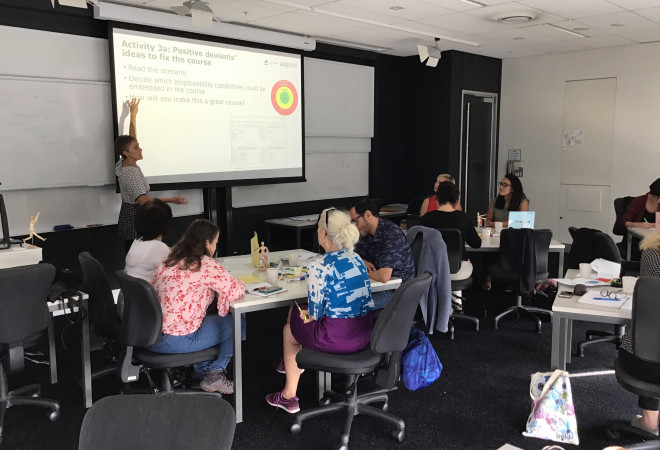
PROJECT
Embedding employability in the curriculum
Supporting learners,
Learner access and pathways,
Teaching strategies,
Strategic Leadership and Change,
Assessment
Status
Completed: 1 October 2020
Project Details
A two-year, action research project to discover, trial and share effective and efficient ways of embedding employability in the curriculum run by the University of Auckland, University of Otago and the New Zealand Association of Graduate Employers.
Aims:
The project's main aims were to:
- build understanding of effective curriculum based and co-curricula pedagogies for developing and evidencing employability attributes
- build understanding of the mechanisms and assessment techniques for incorporating and recognising co-curricula, life and employment experiences within degree programmes
- trial and evaluate effective practices across settings
- build and disseminate a guiding framework and tools for lecturers, programme designers and leaders in learning and teaching.
Methodology:
The project's methodology was broken into five phases:
- investigate and share practices with stakeholders
- conduct literature reviews to create a draft framework for embedding employability attributes
- conduct a series of two-step case analyses to document successful practices, identify archetypal interventions and evaluate their impact
- assess how readily observed practices can be replicated by others
- prepare detailed guidance and tools to enable others to adopt and build on the project's work.
Team
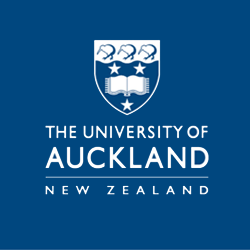
Professor Susan Geertshuis
Principal Investigator
University of Auckland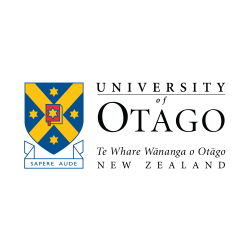
Dr Rob Wass
University of Otago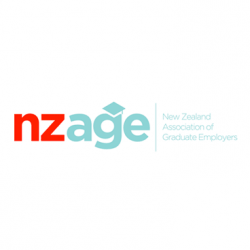
Tim Watts
New Zealand Association of Graduate Employers (NZAGE)
Associate Professor Helena Cooper-Thomas
University of Auckland
Associate Professor Jennifer Curtin
University of Auckland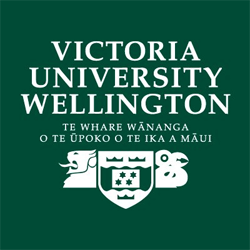
Dr Bernadette Knewstubb
Victoria University of Wellington
Brendon Potter
University of Auckland
Dr Annette Dunham
University of Auckland
Dr Barbara Kensington-Miller
University of Auckland
Dr Sean Strum
University of Auckland
Narissa Lewis
University of Auckland
Peta Moberley
University of Auckland
Professor Gavin Brown
University of Auckland
Professor Rachel Spronken-Smith
University of OtagoStatus
Funding
$300,000.00 (excl GST)
$147,067.00
National Project Fund
$152,933.00
University of Auckland, University of Otago, and the New Zealand Association of Graduate Employers (NZAGE).
Key Findings
- Most respondents provided a shortlist of capabilities which they regarded as relevant to employability. The majority of capabilities identified were skills rather than attitudes, values or dispositions.
- Most participants appeared not to have had many opportunities to think about the future capability needs of their students and relate them to their teaching.
- The dominant strategy reported by interviewees for developing employability capabilities was to introduce work relevant exercises and assessments into the classroom.
- Respondents often reported that they provided opportunity rather than explicit teaching on the assumption that capabilities would emerge.
- Concrete examples of teaching employability capabilities tended to be opportunities to develop observable skills such as those involved in giving a presentation.
- Whilst none of the respondents rejected the idea that universities should prepare students for their futures, many explained that they were not sure how to perform this aspect of their role. This was voiced by one respondent as, “I think a lot of us in teaching have done it by trial and error rather than a solid pedagogy” (Transcript 3).
- Respondents identified a host of other constraints which limited their capacity to develop employability. These related to time, course and assessment requirements, legacy policies, student pushback, attitudes of colleagues and institutional hierarchies.
Key Recommendations
This report details how the project team trialled and disseminated an efficient means of embedding ‘future-ready’ capabilities in advanced and research-informed university courses.
- 17 November 2020